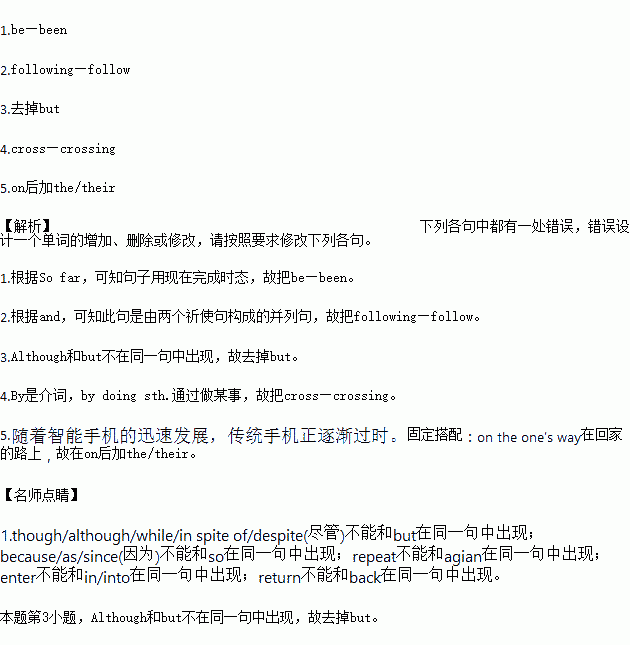题目内容
下列各句中都有一处错误,错误设计一个单词的增加、删除或修改,请按照要求修改下列各句。
增加:在缺词处加一个漏字符号(∧),并在其下面写出该加的词。
删除:把多余的词用斜线(\)划掉。
修改:在错的词下划一横线,并在该词下面写出修改后的词。
1.So far the boys have be able to swim across the river.
2.Following the rules of the road and don’t drive too fast.
3.Although the sun is shining, but it isn’t very warm outside.
4.He thought he could produce more rice by cross two different plants.
5.Traditional cellphones are on way out as smartphones develop rapidly.
练习册系列答案
 口算心算速算应用题系列答案
口算心算速算应用题系列答案 同步拓展阅读系列答案
同步拓展阅读系列答案
相关题目

